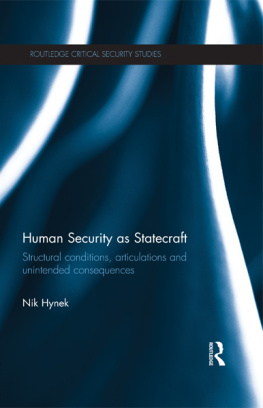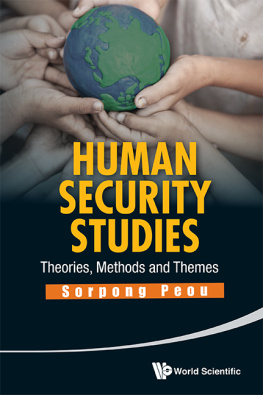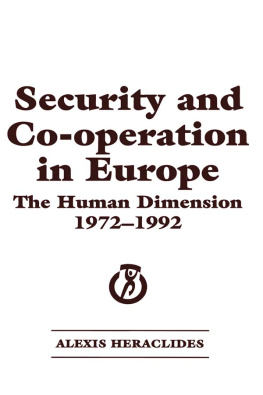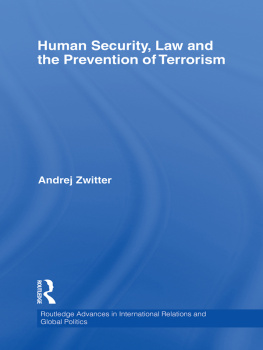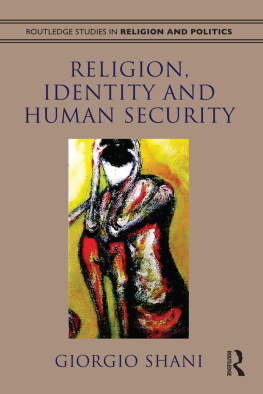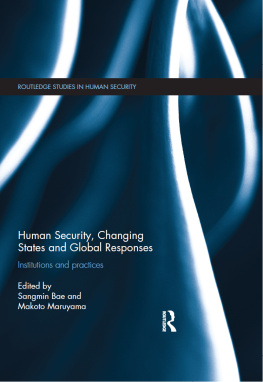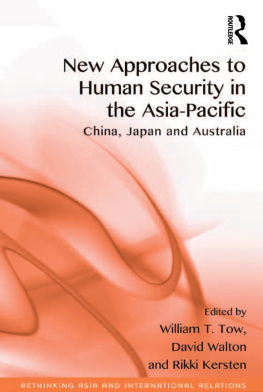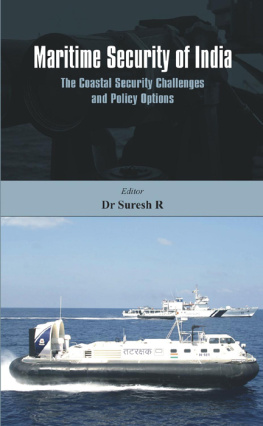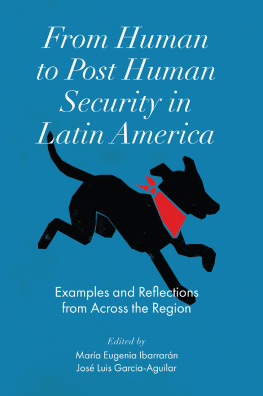Human Security as Statecraft
This book critically investigates the discourses and practices of human security and aims to delve below the stereotypical imageries representing them.
Drawing on Foucault and Deleuze, the author approaches human security from a new perspective, with the aim of ascertaining what has been behind certain articulations of human security, and with what political implications and consequences. This book examines the Canadian and Japanese articulations of human security and establishes the kinds of structural terrains that have enabled, shaped or blocked the unfolding of these versions of human security. The main argument is that the Canadian and Japanese versions of human security are different because they have grown from completely different domestic economies of power governing the relationship between the state apparatus and the non-profit and voluntary sector. While the Canadian human security assemblage has been shaped by transformations in the country's advanced liberal model of government, the Japanese one has been shaped by the continuities of Japan's bureaucratic authoritarianism. The author links structural conditions with actual articulations of the human security projects, and their further development, concluding with an analysis of their unintended consequences.
Human Security as Statecraft will be of much interest to students of Critical Security Studies, human security, global governance, foreign policy and IR/Security studies.
Nik Hynek is Research Leader of the Centre for International Security at the Institute of International Relations (IIR) in Prague, and Lecturer at Charles University in Prague.
Routledge Critical Security Studies series
Titles in this series include:
Securing Outer Space
Edited by Natalie Bormann and Michael Sheehan
Critique, Security and Power
The political limits to emancipatory approaches
Tara McCormack
Gender, Human Security and the United Nations
Security language as a political framework for women
Natalie Florea Hudson
The Struggle for the West
A divided and contested legacy
Christopher S. Browning and Marko Lehti
Gender and International Security
Feminist perspectives
Edited by Laura Sjoberg
Reimagining War in the 21st Century
From Clausewitz to network-centric warfare
Manabrata Guha
The New Spatiality of Security
Operational uncertainty and the US Military in Iraq
Caroline M. Croser
Human Security as Statecraft
Structural conditions, articulations and unintended consequences
Nik Hynek
Human Security as
Statecraft
Structural conditions, articulations and unintended
consequences
Nik Hynek
First published 2012
by Routledge
2 Park Square, Milton Park, Abingdon, Oxon, OX14 4RN
Simultaneously published in the USA and Canada
by Routledge
711 Third Avenue, New York, NY 10017
Routledge is an imprint of the Taylor & Francis Group, an informa business
2012 Nik Hynek
The right of Nik Hynek to be identified as author of this work has been asserted by him/her in accordance with sections 77 and 78 of the Copyright, Designs and Patents Act 1988.
All rights reserved. No part of this book may be reprinted or reproduced or utilised in any form or by any electronic, mechanical, or other means, now known or hereafter invented, including photocopying and recording, or in any information storage or retrieval system, without permission in writing from the publishers.
Trademark notice: Product or corporate names may be trademarks or registered trademarks, and are used only for identification and explanation without intent to infringe.
British Library Cataloguing in Publication Data
A catalogue record for this book is available from the British Library
Library of Congress Cataloging-in-Publication Data
Hynek, Nik.
Human security as statecraft : structural conditions, articulations and unintended consequences / Nik Hynek.
p. cm. - - (Routledge critical security studies series; 8)
Includes bibliographical references and index.
1. Security, International. 2. International relations. 3. Human security. I. Title.
JZ5595.H96 2012
355.033- -dc23
2011034786
ISBN13: 978-0-415-69372-1 (hbk)
ISBN13: 978-0-203-12714-8 (ebk)
Typeset in Baskerville
by Taylor and Francis Books Ltd
To Zuzanka
Contents
List of figures and tables
Figures
Tables
Acknowledgments
First of all, I would like to express my warmest thanks to my mentors and comrades, Mike Pugh, David Chandler, Jozef Btora and David Bosold, for their thoughtful advice and unshakeable trust in me during all the phases of this research. Their wisdom, knowledge, humour and enthusiasm have been important constants for me during this intensely liquid period. Their numerous challenges, comments and suggestions have significantly strengthened the quality of my work. Also, I have immensely appreciated their intellectual openness and flexibility as well as their ability to listen to my arguments. Additionally, Mike's double reading of the entire manuscript has proved vital for my efforts to put finishing touches to the book. I will always be thankful for their great support.
The preparation of this manuscript was undertaken with financial support from several research grants. I would like to acknowledge a Fellowship for Intellectual Exchange 20089 to undertake a research project on the Japanese human security which was awarded to me by the Japan Foundation/Government of Japan; the Canada-Europe Award for the reassessment of Canadian Foreign and Security Policy, which was received from the International Council for Canadian Studies/ Government of Canada; the Graduate Student Scholarship of the International Council for Canadian Studies/Government of Canada to undertake research concerning the impact of Canadian governmental practices on changes in typifications of security knowledge; and, finally, the reception of the Scholarship of the Jan Hus Foundation to support young faculty in the fields of the humanities and social science. I am grateful to all these organisations.
My research for this book was made possible thanks to the numerous interviewees who agreed to give their time to answer my questions. During two rounds of field research in Canada in spring 2006 and autumn 2007 I had the privilege to interview and talk to a number of governmental officials in the Department of Foreign Affairs (DFAIT) and the Canadian International Development Agency (CIDA). As for Japan, during two rounds of field research which I conducted in autumn 2008 and autumn 2010 I had the opportunity to interview a number of governmental officials from the Ministry of Foreign Affairs (MOFA) and the Japan International Cooperation Agency (JICA). Additionally, I would like to thank to a high-ranking official from the UN Office of Disarmament Affairs in New York, USA, and a high-ranking official from the UN Institute for Disarmament Research (UNIDIR) in Geneva, Switzerland, for their frank discussion of the UN practices in the area of human security and their perspective on the Canadian and Japanese human security projects. Notwithstanding their tight schedules, all the above officials granted me a considerable part of their time to share their insights with me. Although I cannot name them due to their preference to remain anonymous on account of the political sensitivity of issues I discussed with them, I would like to express my sincere gratitude for their help.

